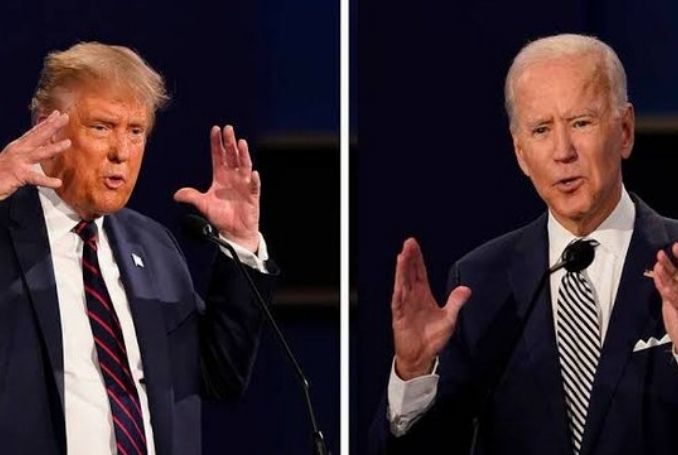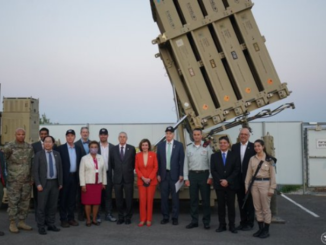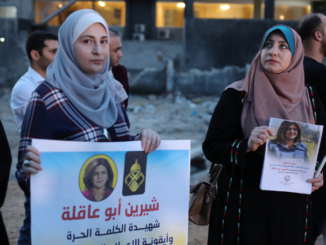
By Benay Blend
On the eve of the US elections, tensions are very high. Concerns range from right-wing violence at the polls to the fear of a contested election in which the conservative Supreme Court might be the deciding factor.
For the most part, these fears are well-grounded. On October 30, a caravan of vehicles flying flags in support of Donald Trump confronted a Biden campaign bus, thereby forcing staff aboard to cancel at least two stops in Texas. In response, the President claimed that his supporters who ran the bus off the road were “patriots” attempting to protect the staffers from what danger he failed to say.
The Federal Bureau of Investigation (FBI) announced that it is investigating the situation, though apparently, it took a while for the police to arrive after Biden’s people called them for support.
In Graham, North Carolina, police were much quicker to respond, but this time at a get-out-the-vote rally at which participants allegedly blocked the highway without permission. There they pepper-sprayed participants who were walking from the local church to the courthouse.
“We are fed up with this kind of treatment in Alamance county and in Graham city,” said Reverend Greg Drumwright. “Both of those law entities … colluded to suppress peaceful organizers, who were here not only to vote today, but to call an end to system oppression and racial disparages.”
In Philadelphia, too, property took priority over people as the National Guard arrived on October 30th. Their arrival followed several days of protest over the police shooting of Walter Wallace, Jr., who allegedly refused to drop a knife. His family explained that he was having a mental health crisis, but there appeared to be no effort to de-escalate the situation short of murder.
The National Guard will be securing buildings like City Hall, but also the local Walmart and other businesses.
What all of these examples have in common is that the right-wing violence that has erupted here is a reflection of the brutality that the US supports in other countries. Accordingly, Mawusi Ture, a long-time Black advocate, posted the following quote from a fellow activist on Facebook:
“I think the ‘coup’ rhetoric is overblown and misplaced in this election in the US (because this whole damned system is a coup against the people and always has been), but the violence that comes with US-backed coups in other countries is def showing up here, if not in full, but absolutely a fraction of it, and it’s shocking to y’all because you ain’t used to it… And honestly, the ancestors of 40 million of us here are, as well as those of our indigenous and Chicano ancestors, too. Welcome to our world, I guess. We tried to tell you.”
This analysis applies particularly well to Joe Biden’s unqualified support for Israel, an alliance, he says, that is based on our “shared values.”
Indeed, as Philip Weiss makes clear, both Trump and Biden are competing in the final hours of the campaign to prove which candidate would “be a better president for Israel,” as if the two countries suddenly are one. On one of his last stops, the President bragged:
“And I also recognized Israeli sovereignty over the Golan Heights. They’ve been working on that for 52 years. We got it done in two hours and it’s not easy. And every president wanted to do those two things for many, many decades, but they couldn’t. And I understand why they couldn’t. A lot of pressure, a lot of pressure against. And instead of never-ending wars in the Middle East, we’re forging peace deals all over the place. You see it. No blood in the sand, no blood in the sand.”
Despite Trump’s claim otherwise, there is blood in the sand, though it is Palestinian blood that Trump deems disposable. Like all of the victims of police violence in America, their blood is not factored into the platform of either candidate.
Whoever wins the election, the violence will not end, not the resistance to settler-colonial brutality in both countries and/or the bloodshed perpetrated on the colonized.
As Ramona Wadi notes, the “Palestinian narrative is one of reclamation, of political rights, and one that is traced back to the very people the US is seeking to eliminate in terms of visibility – the Palestinian refugees.” For the poor and people of color in America, it is the same struggle. Both will continue regardless of the Nov. 3 outcome.
– Benay Blend earned her doctorate in American Studies from the University of New Mexico. Her scholarly works include Douglas Vakoch and Sam Mickey, Eds. (2017), “’Neither Homeland Nor Exile are Words’: ‘Situated Knowledge’ in the Works of Palestinian and Native American Writers”. She contributed this article to The Palestine Chronicle.

– Benay Blend earned her doctorate in American Studies from the University of New Mexico. Her scholarly works include Douglas Vakoch and Sam Mickey, Eds. (2017), “’Neither Homeland Nor Exile are Words’: ‘Situated Knowledge’ in the Works of Palestinian and Native American Writers”. She contributed this article to The Palestine Chronicle.







